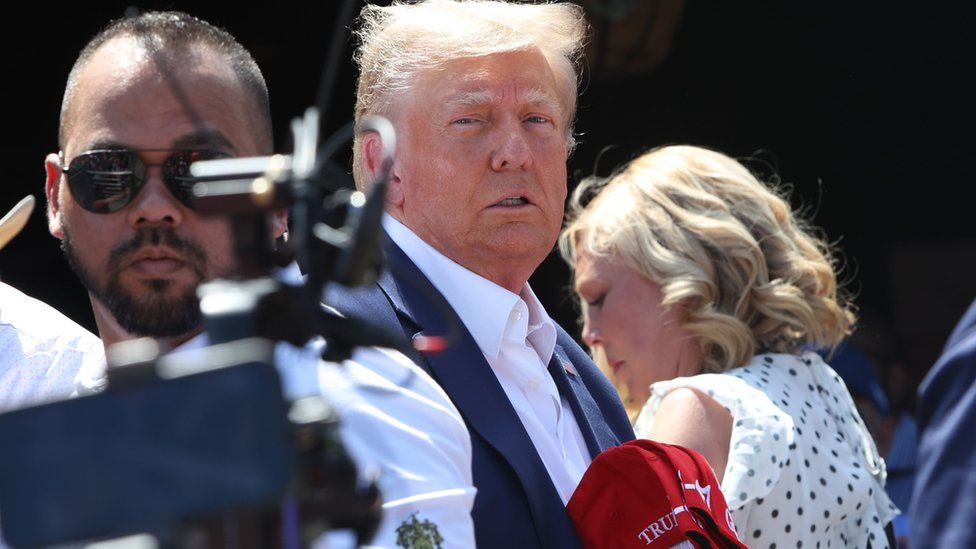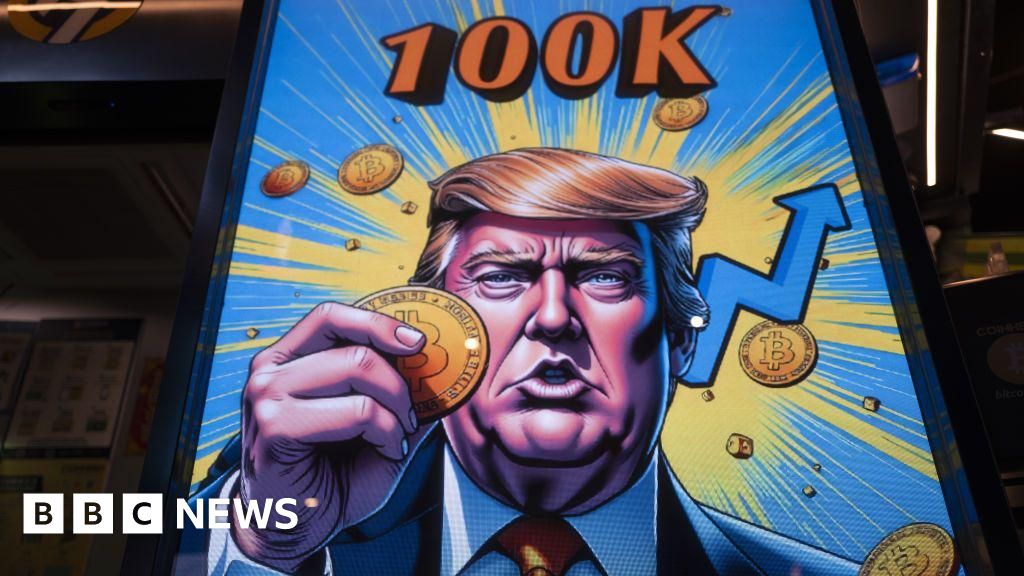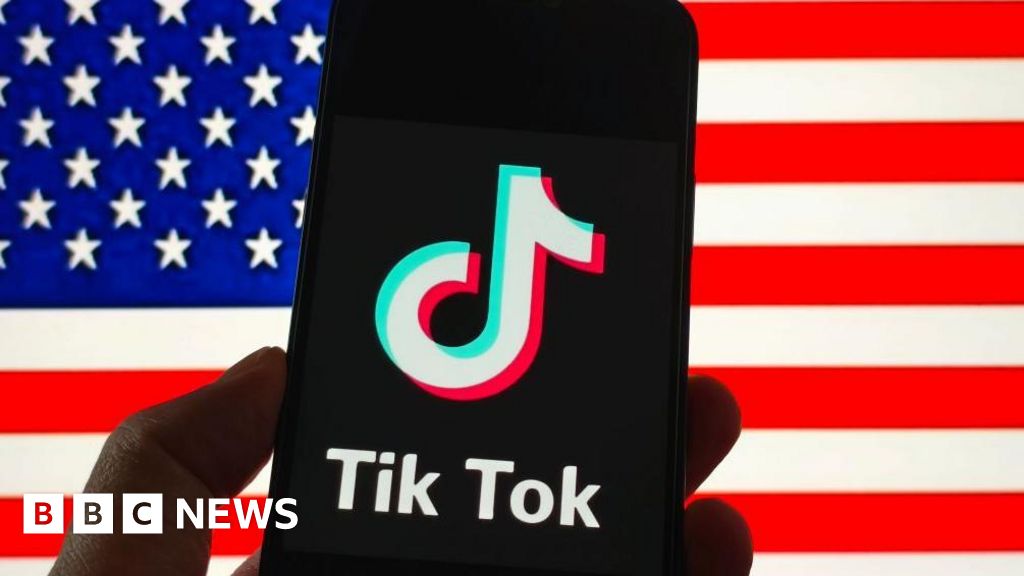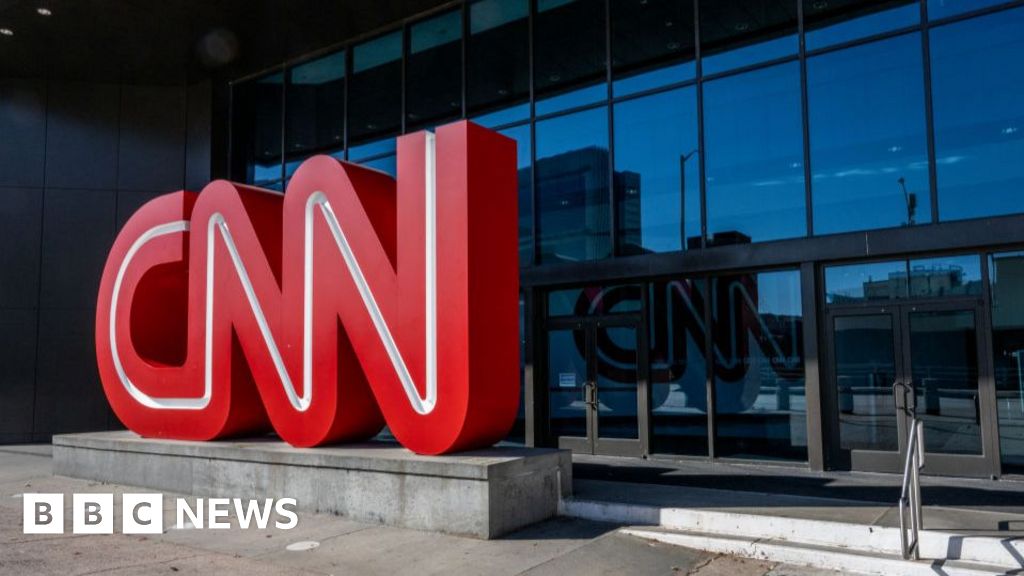ARTICLE AD BOX
 Image source, EPA
Image source, EPA
Donald Trump's campaign stops are just one part of his increasingly hectic schedule
By Anthony Zurcher
North America correspondent
Running for president of the US is an arduous task even in the best of times.
Seeking the White House while facing multiple indictments and the prospect of multiple civil and criminal trials is an almost unimaginable task. That, however, is the realty that Donald Trump currently confronts.
A presidential campaign involves near nonstop campaigning and fundraising through a long season of state primaries that determine the party nomination followed by a general election campaign under the intense scrutiny of the national media.
There are debates, set-piece policy speeches and the multi-day nominating convention - with its balloon drops, confetti and spectacle, but also its potential for unscripted political drama if things go sideways.
While the first presidential nomination contest, in Iowa, isn't until January, the Republican presidential race has already begun in earnest. The party is about to begin holding monthly debates for qualifying candidates. The first takes place next week in Wisconsin.
Mr Trump has yet to confirm whether he will attend the debate, but either way the schedule provides an early display of how his legal concerns could factor into his political calculations. The former president will probably have to appear in person at an Atlanta courthouse in the next week to be formally arraigned on charges of interfering in the Georgia 2020 election, while his opponents prepare to take the debate stage.
While much of Mr Trump's legal - and political - drama will take place in 2024, there's already one trial scheduled for later this year. On 2 October, New York state's civil fraud lawsuit against Mr Trump and his business empire is scheduled to go to trial. Mr Trump is not required to appear in court, but it still could be a distraction - and it comes just five days after the second scheduled Republican primary debate.
When the calendar flips to 2024, things start to really heat up. The Iowa caucuses - the first Republican presidential selection contest - are scheduled for 15 January, the same day a defamation trial against Mr Trump begins. It is the second case brought by writer E Jean Carroll, who has already won a $5 million judgement from the former president for denying he sexually assaulted her.
Mr Trump's New York hush-money case is scheduled for trial in March and the federal case involving mishandling classified documents is set for May. That will be after many of the key Republican primaries have taken place. But preparation for those cases, including pre-trial hearings and depositions, will began well beforehand.
Then there are the two criminal indictmentsthat have yet to be scheduled. Special Counsel Jack Smith has said he wants his 2020 election-interference case to go to trial in early January and that it could last four to six weeks. Mr Trump's lawyers will certainly contest that, given that the trial could stretch past three of the key early presidential contests. The decision is ultimately up to the judge overseeing the case, however.
Georgia District Attorney Fani Willis has said she wants her sprawling racketeering case against Mr Trump and 18 co-defendants to reach trial within six months, but that timeline is also ambitious.
All the presiding judges in these cases will take into consideration Mr Trump's legal concerns, as well as the campaign timeline, and attempt to work out a schedule that best accommodates all the competing interests.
In the second half of 2024, those interests include a Republican national convention that is slated for mid-July and the traditional series of presidential debates that take place in early autumn.
At some point the possibility of a trial in the shadow of November's presidential election - or even after it - becomes a real possibility.
The trials - and any pre-trial hearings, depositions and other various legal proceedings - will take up weeks if not months of Mr Trump's time. He will have to schedule his campaigning, including his beloved mass public rallies, around them. He could have judges issuing orders to limit what he can publicly say - and sanctioning him if he does not comply.
Then there's the massive financial drain that supporting multiple teams of lawyers to contest the criminal charges against Mr Trump and his associates presents. A Trump-affiliated political committee has already spent more than $40m on legal fees just in the first half of 2023, with the first criminal trial still months away.
Those numbers will only go up - and they will continue to limit the amount of money the former president can direct to the nuts and bolts of his campaign, such as grass-roots organising, television and online advertisements, and staff and infrastructure investments.
It is a daunting burden for any candidate - even one who has shown Mr Trump's remarkable political durability.

 1 year ago
27
1 year ago
27








 English (US) ·
English (US) ·